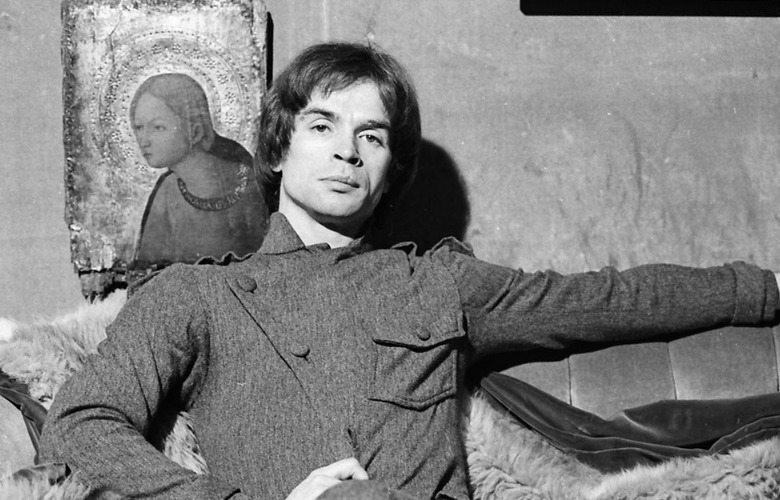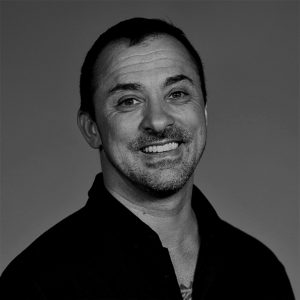
Rudolf Khametovich Nureyev was a Soviet-born ballet dancer. He is widely regarded as the greatest male ballet dancer of his generation. In addition to his great accomplishments as a dancer, he was also a choreographer. At the height of his career, he was the chief choreographer of the Paris Opera Ballet.
Rudolf Nureyev was born on March 17th, 1938. On a Trans-Siberian train near Irkutsk, Siberia, to a Bashkir-Tatar family.
He began his early career with the ballet company that, during the Soviet era, was called Kirov Ballet. Nowadays, the company has reverted to its original name, Mariinsky Ballet.
In 1961, Rudolf Nureyev defected to the West despite great efforts by the KGB to stop him. It was the first defection of a Soviet artist during the Cold War, and it created an international sensation.
Nureyev went on to dance with the Royal Ballet in London. From 1983 to 1989 he was the director of the Paris Opera Ballet. As mentioned earlier, he also served as their chief choreographer.
In 1984, Rudolf Nureyev tested positive for HIV. However, for many years he refused to acknowledge that anything was wrong with his health. He kept on performing.
Unfortunately, this damaged his career since many of his admirers were disappointed by his reduced strength and skills. In the summer of 1991, his health began to decline dramatically. Then, in the spring of 1992 he entered the final phase of the disease.
During this time, Rudolf Nureyev allegedly wrote down his thoughts. Sources in social media say he composed a letter to his greatest love and passion in life: Dance.
At the point of publishing this article it wasn’t possible to verify the validity of the letter. But, nevertheless, I wanted to share these sentiments with you here, simply for the inspirational power and love of the art form reflected in them.
“The impact of dance in my life… It was the smell of my skin changing. It was getting ready before class. The joy and anticipation. And it was running away from school or after working in the fields with my dad and my brothers.
I gladly walked those two kilometers to dance school.
Normally, I would never have been a dancer. I couldn’t afford this dream. But I was there, with my worn shoes, with my body opening itself to music. I felt as if I was flying above the clouds.
It was the sense dance gave to my being. Being there and transforming my muscles into words and poetry. It was the wind in my arms. Sharing the moment with the other guys like me that were there and maybe wouldn’t be dancers. We shared the sweat.
For thirteen years, I studied and worked. I couldn’t audition because I was needed to work in the fields.
But I kept on dancing. I learned to dance because it was impossible for me not to do it.
It was impossible for me to think I was elsewhere, to not feel the earth transforming under my feet. I could not imagine to not get lost in the music, and to not, continuously try new steps.
Every day, I woke up and all I could think about was that moment when I would put my feet inside my slippers again. When I would savor the moment with my entire body on fire.
When I was there, with the smell of camphor, wood, tights, I was an eagle on the rooftop of the world. I was the poet amongst poets.
In those moments suspended in dance, I was everywhere, and I was everything.
I remember a ballerina, Elèna Vadislowa, from a rich family. She was well taken care of, beautiful. She wanted to dance as much as I did. But later, I realized our motivation wasn’t quite the same after all. Elèna danced for the auditions, for the end of the course show, for the teachers watching her, to pay tribute to her beauty.
For two years, she prepared for the Djenko contest. Everyone expected her to win. She sacrificed two years of her life preparing. But she didn’t win the contest. Afterwards, she stopped dancing, forever. She didn’t resist.
That was the difference between me and her. I used to dance because it was my creed, my need, my words that I didn’t speak, my struggle, my poverty, my tears.
I used to dance because only while I danced could I break through the limits of my social condition, my shyness, my shame. When I danced, I would hold the universe in my hands.
And, while I was at school, studying, or when I worked in the fields at 6am, my mind was able to endure because it was drunk with my body capturing the air.
I was poor thus many opportunities were taken by those who had new clothes and the funds to make trips. But I didn’t suffer from missing opportunities. I danced on, surrounded by that poetry that only the sublimation of art can give.
Then, the first dancer of the year-end show got hurt. I was the only one who knew every move because I had quietly rehearsed every step.
They gave me his new, shiny clothes and after thirteen years, finally gave me the responsibility to demonstrate my skills onstage. Nothing was different for me in those moments. When I was on stage, I felt like I danced in the studio with my clothes off.
I performed, but it was the dancing I cared about. The applause reached me from far away. Backstage, after the show, all I wanted was to take off the uncomfortable tights. But everyone showered me with compliments, and I had to wait.
My sleep wasn’t different from other nights. I had danced and whoever had watched me was just a cloud far away on the horizon. However, from that moment on my life changed. Suddenly, my name was on everyone’s lips. But my passion and need to dance remained the same.
I also kept helping my dad in the fields even though from then on, my career took off and I became one of the brightest stars in the world of dance.
Now, I know I’m going to die because this disease doesn’t forgive. My body is trapped. My blood doesn’t circulate. I lose weight.
However, still, even now, dance gives me the freedom to be. I’m here, my body shutting down, but I dance with my mind. I fly beyond my words and my pain.
I dance inside with the wealth of experiences I have accumulated. These will follow me everywhere. I know I have given myself the chance to exist on my terms.
And I have learned that when we experience tiredness, it takes effort to dance, and our feet are bleeding, we need to look beyond that. We need to not only dance for success but rather understand more deeply. If we can’t comprehend the full and unique pleasure of moving, then we don’t understand the deep essence of life.
The meaning is to become, not to appear. You should dance for life. It’s not about being a dancer but rather about the dance.
Those who have never found their passion – for me it is, for example, the pleasure of walking into a studio with wooden bars and mirrors – and those who stop because they don’t get the results they envisioned… they haven’t entered the depths of life.
It’s the law of love: you love because you feel the need to do it, not to get something out of it or be reciprocated. If you feel the latter, you are destined to a life of unhappiness.”
On YouTube: BBC Documentary Rudolf Nureyev – Dance to Freedom:
Claire Bournet and ‘Trafic de Styles’ in Paris – an Interview
Guilherme Botelho – Dance and the Quest for Meaning


Liam Klenk was born in Central Europe and has since lived on four continents. Liam has always been engaged in creative pursuits, ranging from photography and graphic design, to writing short stories and poetry, to working in theatre and shows. In 2016, Liam published his first book and memoir, 'Paralian'.
Read Full Profile© 2021 TheatreArtLife. All rights reserved.

Thank you so much for reading, but you have now reached your free article limit for this month.
Our contributors are currently writing more articles for you to enjoy.
To keep reading, all you have to do is become a subscriber and then you can read unlimited articles anytime.
Your investment will help us continue to ignite connections across the globe in live entertainment and build this community for industry professionals.